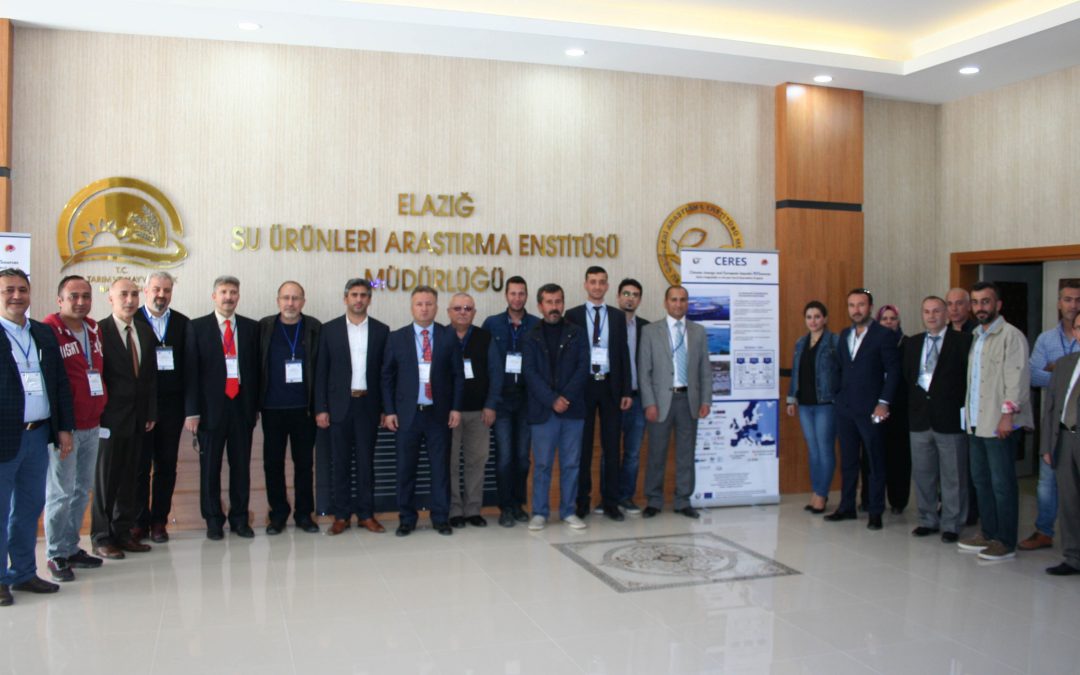by CERES | May 15, 2017 | CERES publications, CERES Science, marine aquaculture, marine fisheries
Despite the DPSIR (Driver-Pressure-State-Impact-Response) approach being used for a long time, there is still confusion over the definition of its terms and so to be appropriate for current marine management, we contend that this confusion needs to be addressed. Our...
by CERES | May 15, 2017 | CERES publications, inland waters
CERES case studies Designing a global assessment of climate change on inland waters: knowns and needs To date, there are few comprehensive assessments of how climate change affects inland finfish, fisheries, and aquaculture at a global scale, but one is necessary to...

by CERES | May 4, 2017 | CERES News
CERES case studies Turkish industry gets involved into CERES A joint workshop organized by Mersin University (MEU) and Elazığ Fisheries Research Institute was held on 4th of May in Elazığ Province, the largest rainbow trout producing region in Turkey. The workshop...
by CERES | Apr 26, 2017 | CERES publications, marine aquaculture, marine fisheries
Stings from the hydrozoan species in the genus Physalia cause intense, immediate skin pain and elicit serious systemic effects. There has been much scientific debate about the most appropriate first aid for these stings, particularly with regard to whether vinegar use...
by CERES | Apr 7, 2017 | CERES publications
CERES case studies “And DPSIR begat DAPSI(W)R(M)!” – A unifying framework for marine environmental management The marine environment is a complex system formed by interactions between ecological structure and functioning, physico-chemical processes and...


Comments